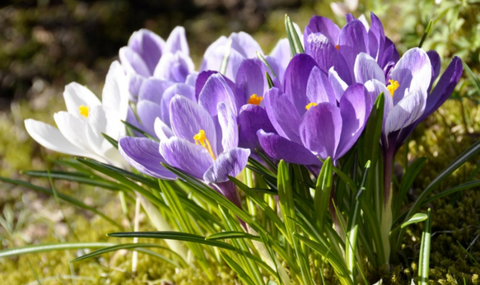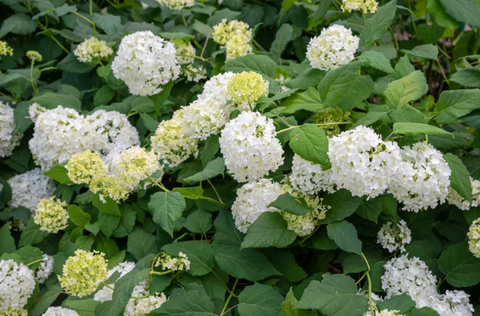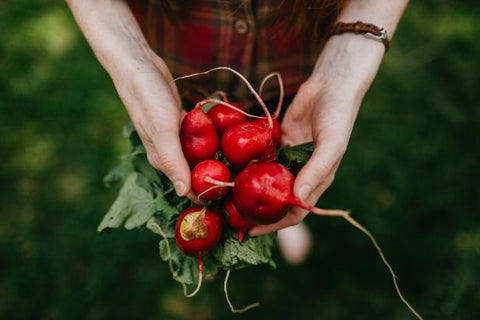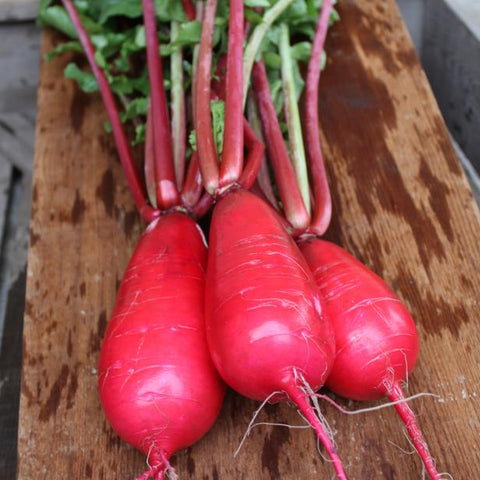Gardening is more than just a hobby; it's a way of life that connects us with the natural world and the communities around us. National Gardening Day celebrates the joys and benefits of gardening, inviting people of all ages and backgrounds to dig in and get their hands dirty. In this article, we'll explore the history of National Gardening Day, the numerous benefits of gardening, and ways to celebrate this special day while fostering a deeper connection with nature and community.The following content also has some reference value for raised garden beds.
Ways to Celebrate National Gardening Day
Choosing the Right Plants for Your Garden
Sustainable Gardening Practices
Building a Sense of Community through Gardening
Gardening as a Therapeutic Activity
Resources for Gardening Enthusiasts
History of National Gardening Day
National Gardening Day has its roots in the longstanding tradition of celebrating the arrival of spring and the start of the gardening season. Originating in the United States, National Gardening Day has grown into a global phenomenon, with gardeners around the world coming together to share their love of plants and cultivate beautiful outdoor spaces. The exact origins of National Gardening Day are unclear, but the holiday is typically observed on April 14th, a time when gardeners are busy preparing their gardens for the growing season ahead.
Benefits of Gardening
Physical health benefits
Gardening isn't just a hobby; it's a workout for the body and soul. Digging, planting, and weeding engage muscles, improve cardiovascular health, and increase flexibility. The fresh air and sunshine provide a natural dose of vitamin D, boosting immune function and promoting overall well-being.
Mental health benefits
In the midst of life's hustle and bustle, gardening offers a therapeutic escape. The rhythmic tasks and close communion with nature alleviate stress, anxiety, and depression. Immersing oneself in the sights, sounds, and smells of the garden cultivates mindfulness and enhances cognitive function.

Environmental benefits
Gardens are green sanctuaries in urban jungles, playing a crucial role in biodiversity conservation and ecosystem restoration. They mitigate air and water pollution, sequester carbon dioxide, and provide habitat for countless species. By embracing sustainable gardening practices, we can minimize our ecological footprint and contribute to a healthier planet.
Community benefits
Gardens have a remarkable ability to bring people together, transcending age, background, and culture. They serve as vibrant hubs for social interaction, where neighbors bond over shared interests and collaborate on common goals. Through collective efforts, communities can beautify their surroundings, enhance food security, and foster a sense of belonging.
Ways to Celebrate National Gardening Day
Planting a garden
Embark on a green journey by planting seeds of hope and renewal. Whether it's a small plot in your backyard or a cluster of pots on your balcony, every garden holds the promise of growth and transformation.
Volunteering at community gardens
Join hands with fellow gardeners to sow seeds of change in your community. Volunteer at local gardens, parks, or schools to cultivate green spaces that nourish both the land and its inhabitants.
Sharing gardening tips and tricks
Spread the joy of gardening by sharing your knowledge and expertise with others. Offer guidance on plant care, pest management, and sustainable practices to empower budding gardeners on their green quests.
Hosting gardening events or workshops
Organize garden tours, workshops, or seed swaps to cultivate a culture of learning and collaboration. Create opportunities for people to connect, exchange ideas, and inspire each other on their gardening journeys.
Connecting with fellow gardeners online
Harness the power of technology to cultivate virtual communities of like-minded gardeners. Join online forums, social media groups, or gardening blogs to share stories, seek advice, and celebrate the joys and challenges of gardening.
Ideas for Creating a Garden
Container gardening
For urban dwellers with limited space, container gardening offers a versatile solution. From herbs and flowers to vegetables and fruits, virtually any plant can thrive in containers, adding a touch of greenery to balconies, patios, and windowsills.

Raised bed gardening
Elevate your gardening game with raised beds, which provide better drainage, soil aeration, and weed control. They're perfect for growing vegetables, herbs, and flowers, allowing you to maximize space and productivity in your garden.
Vertical gardening
Think outside the box by going vertical with your garden design. Vertical gardens utilize walls, trellises, and hanging planters to create living works of art that maximize space and create visual interest.
Indoor gardening
Bring the beauty of nature indoors with indoor gardening projects. From succulent terrariums to lush houseplant jungles, indoor gardens add life and vitality to any space, purifying the air and uplifting the spirit.
Pollinator-friendly gardening
Welcome bees, butterflies, and other pollinators into your garden with pollinator-friendly plants. By providing habitat and food sources for these vital creatures, you can support biodiversity and ensure the health and resilience of your garden ecosystem.
Choosing the Right Plants for Your Garden
Considerations for climate and location
Before selecting plants for your garden, assess your local climate and microclimatic conditions. Choose plants that are well-suited to your region's temperature, rainfall, and soil type to ensure their success and longevity.
Understanding soil conditions
Soil is the foundation of a healthy garden, so take the time to understand its composition and fertility. Conduct soil tests to determine pH levels, nutrient content, and drainage characteristics, then amend as needed to create optimal growing conditions for your plants.
Selecting plants based on purpose
When choosing plants for your garden, consider their intended purpose and function. Are you growing food for sustenance, flowers for beauty, or native plants for wildlife habitat? Select a diverse mix of plants that meet your needs and contribute to the overall health and harmony of your garden.
Sustainable Gardening Practices
Water conservation techniques
In a world of finite resources, water conservation is paramount in the garden. Implement water-saving techniques such as drip irrigation, mulching, and rainwater harvesting to minimize water waste and promote efficient use of this precious resource.
Organic gardening methods
Embrace the principles of organic gardening to cultivate healthy, vibrant ecosystems in your garden. Avoid synthetic chemicals and pesticides, opting instead for natural alternatives such as compost, companion planting, and biological pest control.
Composting and recycling in the garden
Transform kitchen scraps and garden waste into black gold with composting. Compost enriches soil fertility, improves soil structure, and reduces the need for chemical fertilizers, closing the loop on the garden's nutrient cycle and minimizing waste.
Gardening Tips for Beginners

Start small and simple
Begin your gardening journey with manageable projects that match your skill level and available time. Start with a small plot or a few containers, focusing on easy-to-grow plants that offer quick rewards and build confidence.
Educate yourself about gardening basics
Arm yourself with knowledge by learning the fundamentals of gardening through books, online resources, or local gardening classes. Familiarize yourself with topics such as plant care, garden design, and pest management to set yourself up for success.
Don't be afraid to make mistakes
Gardening is a journey of trial and error, so don't let fear of failure hold you back. Embrace mistakes as learning opportunities, and be open to experimentation and adaptation as you refine your skills and deepen your understanding of the natural world.
Seek guidance from experienced gardeners
Tap into the wisdom of seasoned gardeners by seeking advice and mentorship from local gardening clubs, community gardens, or online forums. Experienced gardeners can offer valuable insights, troubleshoot problems, and provide encouragement along your gardening path.
Building a Sense of Community through Gardening
Connecting with neighbors through shared gardens
Forge bonds with your neighbors by collaborating on shared gardening projects. Create communal gardens or neighborhood green spaces where residents can come together to grow food, flowers, and friendships.
Participating in community gardening events
Get involved in community gardening events such as seed swaps, plant sales, or garden clean-up days. These events provide opportunities to meet fellow gardeners, exchange ideas, and contribute to the collective greening of your community.
Sharing excess produce with local food banks or neighbors
Spread the harvest abundance by sharing surplus produce with those in need. Donate fresh fruits and vegetables to local food banks, shelters, or community kitchens, or simply share the bounty with neighbors, friends, and family.
Gardening as a Therapeutic Activity
Stress relief and mindfulness in the garden
Escape the pressures of modern life by immersing yourself in the tranquility of the garden. Engage your senses in the sights, sounds, and smells of nature, allowing stress to melt away and mindfulness to take root.
Fostering a sense of accomplishment and purpose
Experience the satisfaction of nurturing life and witnessing the fruits of your labor flourish. Gardening instills a sense of purpose and accomplishment as you tend to plants, overcome challenges, and witness the cycle of growth and renewal.
Building resilience through nurturing plants
In the garden, resilience is cultivated not only in plants but also in gardeners themselves. Weathering storms, adapting to changing conditions, and persevering through setbacks build resilience, character, and fortitude in the face of life's challenges.

Resources for Gardening Enthusiasts
Books and online resources
Expand your gardening knowledge with a wealth of books, websites, and online forums dedicated to horticulture and botany. From beginner's guides to expert advice, there's a plethora of resources available to help you grow and thrive as a gardener.
Gardening clubs and organizations
Connect with fellow gardeners and tap into a network of support through local gardening clubs, societies, and organizations. These groups offer opportunities for education, camaraderie, and advocacy, enriching your gardening experience and strengthening your ties to the gardening community.
Local nurseries and garden centers
Support local businesses and nurseries by shopping for plants, tools, and supplies close to home. Local nurseries offer a diverse selection of regionally adapted plants, expert advice, and personalized service, enhancing your gardening experience and fostering a sense of connection to your community.
Conclusion
National Gardening Day is more than just a day on the calendar; it's a celebration of our deep-rooted connection to nature and each other. Whether you're planting seeds, tending to a garden, or simply basking in the beauty of green spaces, take time to honor the transformative power of gardening in your life and community. As we cultivate gardens, we cultivate bonds that nourish our bodies, minds, and spirits, creating a greener, healthier, and more vibrant world for generations to come.









